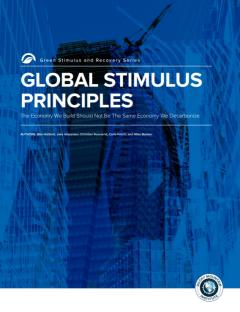
As the effects of the COVID-19 crisis ripple across the globe, strategic stimulus and recovery investments can get world economies back on track now and help us build back in a way that ensures greater resilience to the disruptions and crises we will inevitably face in the future. The current pandemic shows many parallels to, and interconnections with, a looming climate crisis. A response that addresses both crises at once will advance a low-carbon economy that is more resilient and helps mitigate the worst impacts of climate change, while improving the economy, the environment, and our health and communities.
This report outlines four core principles of stimulus and recovery efforts that should guide any global response to the COVID-19 pandemic:
- Create jobs and grow the economy: prioritize investments with the greatest job creation and economic growth potential.
- Support public health and reduce air pollution: in light of the current COVID-19 crisis, support industries and technologies with the potential to improve public health.
- Enhance economic, energy and climate resilience: prioritize the industries, technologies and systems that help people weather or adapt to unexpected shocks or crises.
- Decarbonize: prioritize investments that will enable the world to achieve the Paris Agreement’s goal of keeping global temperature rise to well below 2.0⁰C with best efforts to limit warming even further to 1.5⁰C.
It also provides guidance for effectively integrating these principles into our efforts to rebuild, while setting us on a path toward a cleaner, healthier, more just, and more sustainable future.
